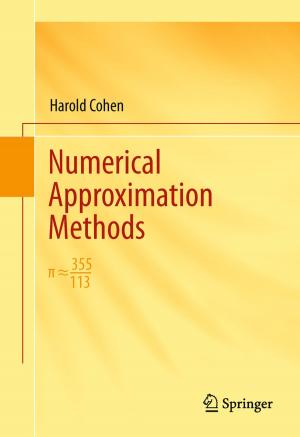Simulating Society
A Mathematica®Toolkit for Modeling Socioeconomic Behavior
Business & Finance, Management & Leadership, Management Science, Economics, Theory of Economics| Author: | Richard J. Gaylord, Louis J. D'Andria | ISBN: | 9781461217268 |
| Publisher: | Springer New York | Publication: | December 6, 2012 |
| Imprint: | Springer | Language: | English |
| Author: | Richard J. Gaylord, Louis J. D'Andria |
| ISBN: | 9781461217268 |
| Publisher: | Springer New York |
| Publication: | December 6, 2012 |
| Imprint: | Springer |
| Language: | English |
An exploration of the basis for social and economic behaviour. Using cellular automata in particular, the authors model various factors that are involved in a system of individuals who interact socially and economically with one another. Computer simulations in the social sciences provide a laboratory in which qualitative ideas about social and economic interactions can be tested. This brings a new dimension to the science, where 'explanations' abound, but are rarely subject to much experimental testing. The authors have chosen Mathematica because it has a number of features which make it uniquely qualified for use by social scientists, especially those without expertise in computer programming. Further, users can easily access and readily interact with the various 3.0 Mathematica notebooks, plus other data to be found at www.telospub.com.
An exploration of the basis for social and economic behaviour. Using cellular automata in particular, the authors model various factors that are involved in a system of individuals who interact socially and economically with one another. Computer simulations in the social sciences provide a laboratory in which qualitative ideas about social and economic interactions can be tested. This brings a new dimension to the science, where 'explanations' abound, but are rarely subject to much experimental testing. The authors have chosen Mathematica because it has a number of features which make it uniquely qualified for use by social scientists, especially those without expertise in computer programming. Further, users can easily access and readily interact with the various 3.0 Mathematica notebooks, plus other data to be found at www.telospub.com.















